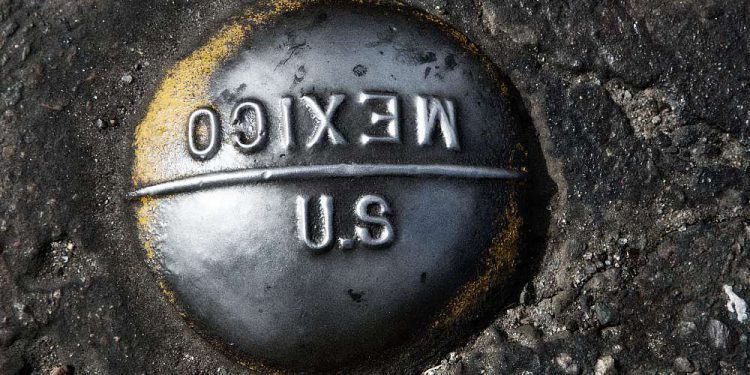This is the new Discern Report Newsletter. Instead of being a single-source newsletter like every other conservative email, the Discern Report will bring a wide range of stories from various sources across the web. There will be one top story that will be written by Editor JD Rucker. There will also be links to 10-15 other stories of interest to American patriots.
Thank you for reading and please be sure to forward it to anyone you believe needs to hear the truth about politics, culture, and faith in America. Our intention is to be the most essential daily email newsletter in America.
Around the Web
- Red State: US Signs 10-Year Security Agreement With Ukraine at G7 Summit
- Zero Hedge: War on Nation’s Food Supply?: Idaho Restricts Water to 500,000 Acres of Farmland
- Revolver News: Rep. Massie Wants to Blow the Lid off the Congressional ‘Sexual Harassment Slush Fund’ Using Alvin Bragg’s Playbook
- RVM News: CNN Sets Rules for Biden-Trump Showdown
- Prepper All-Naturals: Don’t Be Surprised When Real Beef Is Completely Replaced by Lab-Grown Abominations
- The Gateway Pundit: Illegal Alien From El Salvador Charged With Raping and Murdering Mother-Of-Five in Maryland
- Slay News: Top Study Confirms UN’s ‘Climate Crisis’ Claims Are a Hoax
- Conservative Brief: Speaker Johnson Vows Action After Biden’s DOJ Declines to Prosecute Garland
- RVM News: 5 Ways to Beat the Biden Economy at the Grocery Store
- Natural News: Senate Committee Sneaks Provision Into NDAA Allowing Women to Be Drafted
- Prepper Bar Now: “Wealth In Your Wallet”: New Prepper Bar Disrupts Gold and Silver Industry
- Washington Free Beacon: Soros-Backed DA Called ‘the Media and the Asians’ Her Enemy, Lawsuit Alleges
- Infowars: LA City Council Removes U-Turn Signs in Gay Neighborhood Because They Are “Homophobic”
- Zero Hedge: Beyond Bad: Fake Meat and Other ‘Ultra Processed’ Vegan Food Linked to Heart Disease, Early Death
Why Building the Wall and Mass Deportations Should Be the Biggest GOP Campaign Talking Points
Another election year, another zigging and zagging by Republican strategists, PACs, and campaign consultants who refuse to push the easy button for massive victories in November.
They’re talking about Joe Biden’s many disastrous policies and embarrassing moments. They’re talking about lawfare and the weaponized Department of Justice. They’re talking about men competing against women. And while all of these are important, they’re spending far too little time harnessing the threat that’s on every voter’s mind.
The border invasion affects every American. Donald Trump is talking about mass deportations and that’s great. He should also be talking about the wall. But his messaging is far less concerning than what’s coming out of every other mouth attached to a Republican campaign. They should be talking about the border crisis MORE than even Trump.
Here are three reasons why this would be the real winning strategy…
It’s the Economy, Stupid
On every level, the border invasion has a detrimental effect on the economy that harms every single American to some extent. It’s not just lost jobs or the fact that the vast majority of jobs created under the Biden-Harris regime have gone to so-called “migrants.” It’s also the effects on local businesses.
Illegal aliens cost a ton of money to house, feed, and care for and that’s not even taking into account the more direct impacts on the economy, which brings us to reason #2…
Crime, Crime, and More Crime
A day doesn’t go by without local news stories across America telling of illegal aliens committing heinous crimes. From the obvious challenges of drugs and theft to the life-stealing crimes like rape and murder, it has become abundantly clear that Trump was right when he said “they aren’t sending their best.”
As important as those two reasons are, there’s one major
It’s a Democrat Issue, Not a Biden Issue
“If you want the border secure, become a Republican.”
Those words should be uttered by every campaign. They should be used in debates against Democrats, especially when those Democrats are in districts that force them to pretend to be in favor of border security.
Then, there’s the replacement candidate factor. I’m still not convinced Joe Biden is going to be on every ballot in November. There are emergency measures and legal actions that can install a new Democrat nominee rapidly. Attacks against Biden’s foreign policy, age, dementia, and even the economy will be blunted or reversed if Democrats replace him. All of the effort these campaigns are putting forth to paint Biden as a moron will be wasted if he’s replaced.
The border, on the other hand, is a topic that is universally beneficial for Republicans regardless of who is at the top of the ticket.
It’s time for Republicans to wise and grab hold of the electoral gold being presented to them. Winning in November could be the only silver lining to the border invasion and the GOP is on the verge of letting that slip away.




